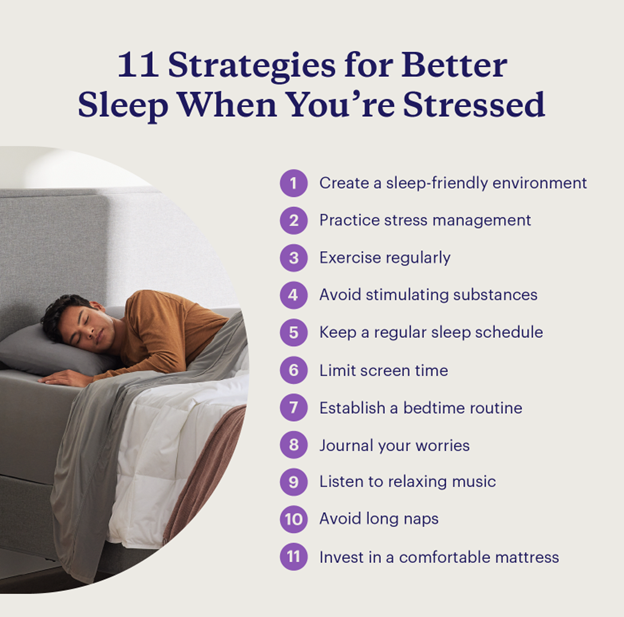Advertisements

| If you feel like you’re too stressed to sleep, you’re certainly not alone, but there are ways you can combat sleepless nights. Consider improving your sleep environment, exercising regularly, and keeping a regular schedule if you find stress keeps you up at night. |
We’ve all been there. You turn off the lights, get into bed, prepare to fall asleep…and then your mind begins to race with a thousand stressful thoughts—sending you into an anxious state of mind that can keep you awake for hours.
While you may just chalk this up to a couple of nights of poor sleep, keeping a healthy sleep schedule is imperative for being your best and most productive self. Poor sleep can have compounding consequences that can affect you in different ways.
Being stressed all the time could impact mental health, which also leads to sleep issues, such as falling asleep much harder.
From dealing with the pressures of school or work to the stress of any personal issues, an endless amount of triggers can cause us to lose sleep. However, humans need sleep to function, so if you’re experiencing strings of sleepless nights, getting on top of the matter is essential.
Fortunately, there are small changes you can make to your daily life that can better prepare you for a good night of rest. Here are 11 easy ways you can de-stress your mind and get better sleep.

